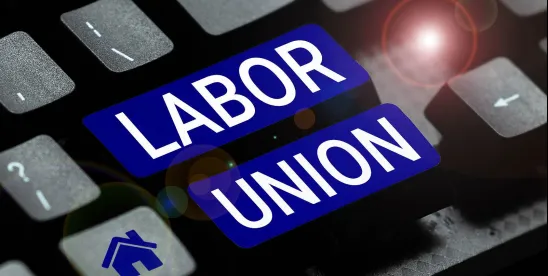On November 13, 2024, the National Labor Relations Board (NLRB) issued a decision prohibiting the practice of holding mandatory employee meetings to discuss the employer’s views on unionization. The decision follows through on the NLRB general counsel’s attack on so-called “captive audience meetings,” an important tool for employers to educate workers about the potential workplace implications of unionization.
Quick Hits
- The NLRB issued a decision prohibiting employers from holding mandatory employee informational meetings to discuss their views on unionization.
- The decision overrules a seventy-six-year-old Board precedent that had allowed such meetings.
- The NLRB outlined a “safe harbor” for employers to hold voluntary meetings on unionization with employees.
The Board held that an employer interferes with employees’ organizing rights under Section 7 of the National Labor Relations Act (NLRA) when it “compels employees to attend a captive-audience meeting on pain of discipline or discharge” to express “its views concerning unionization,” “regardless of whether the employer expresses support for or opposition to unionization.”
“[A] captive-audience meeting is an extraordinary exercise and demonstration of employer power over employees in a context where the Act envisions that employees will be free from such domination,” the Board stated. “We thus prohibit captive-audience meetings.”
The decision overrules a 1948 NLRB decision that had held that such mandatory meetings were lawful.
Notably, the Board found that employer free speech rights, including those embodied by Section 8(c) of the NLRA—which allows employers to express views without “threat of reprisal or force of promise of benefit”—and the First Amendment “do not insulate employers from liability for such violations.”
The decision is the latest union-friendly ruling by the Board, as the term for NLRB Chair Lauren McFerran expires on December 16, 2024. It comes just days after the NLRB overturned a forty-year-old precedent that had held that employers could warn workers that unionization might impact the workplace dynamic.
Mandatory Informational Meetings Prohibited
Employers often hold meetings during a union organizing campaign. These meetings can be an important means for an employer to exercise its right to communicate its position on unionization. However, such meetings have come under increased scrutiny in recent years as several states, such as California and New York, and other jurisdictions have moved to limit or prohibit them, and in April 2022 the NLRB general counsel issued an official memorandum indicating opposition to the practice.
In its latest decision, the Board highlighted aspects of mandatory meetings that in its view render them coercive and unlawful, including that employers can:
- hold the meetings “repeatedly,” “for whatever length of time,” and “whenever” they want, except within twenty-four hours of a representation election;
- “observe employees” to assess their reactions to the employers’ messages and “with whom they associate”; and
- “silence, or even banish, employees who would express their own views or even just ask questions.”
Safe Harbor for Lawful Voluntary Meetings
The Board outlined a “safe harbor” for employers to hold “voluntary,” “workplace, work-hours meeting[s] with employees.” To fall into this safe harbor, “an employer will not be found to have violated Section 8(a)(1) if, reasonably in advance of the meeting, it informs employees that:
- the employer intends to express its views on unionization at a meeting at which attendance is voluntary;
- employees will not be subject to discipline, discharge, or other adverse consequences for failing to attend the meeting or for leaving the meeting; and
- the employer will not keep records of which employees attend, fail to attend, or leave the meeting.”
Still, employers must actually follow through on those assurances and will be found to have compelled attendance if “under all the circumstances, employees could reasonably conclude that attendance” was mandatory or “could reasonably conclude that their failure to attend or remain at the meeting could subject them to discharge, discipline, or any other adverse consequences.”
Dissent
NLRB Member Marvin Kaplan dissented in part and issued a separate opinion, arguing the decision was an “unconstitutional overreach” violating employers’ free speech rights under the First Amendment. He further criticized the majority for bringing on this “sea change in the legal landscape governing union election campaigns” without inviting other stakeholders or interested parties to weigh in on the issue.
Next Steps
While the Board has provided employers a safe harbor, the decision is likely to further restrict employers’ ability to communicate with employees and educate them on the impact of unionization. Still, the Board found that the new ban on mandatory informational meetings only applies prospectively, meaning it will not penalize employers that have already held them.





 />i
/>i

